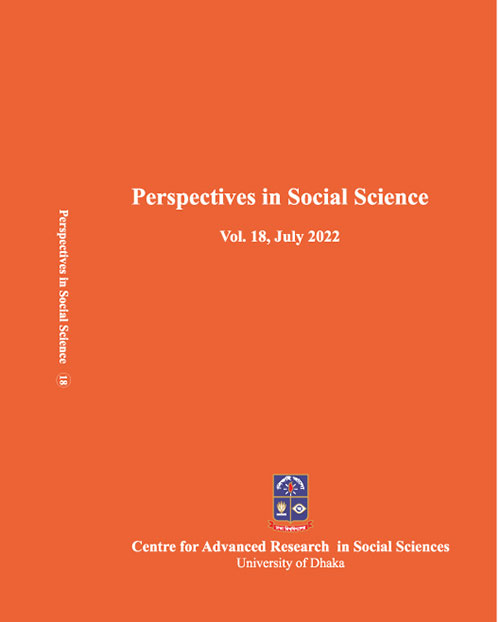Foreshadowing Interstate Rivalries within Regional Organizations: The Gulf Cooperation Council – A Case Study
A.K.M Iftekharul Islam
Published Date : 12-Jun-2024
Social Sciences Perspective
Vol. 18 July 2022
DOI: https://doi.org/10.59146/pss.v18.7534
ISSN : 2957-5001 (Print)
Vol. 18 July 2022
DOI: https://doi.org/10.59146/pss.v18.7534
ISSN : 2957-5001 (Print)
Abstract
The six Gulf states founded the Gulf Cooperation Council (GCC), a formal regional alliance, in 1981. The six states that make up the GCC are Oman, the Kingdom of Saudi Arabia, Bahrain, Qatar, Kuwait, and the United Arab Emirates (The Charter, 2019). Interstate conflicts can substantially hinder diplomatic relations and erode the strong links and ties required to encourage collaboration in a range of disciplines, therefore they surely have a significant impact on any regional organization. The contemporary interstate rivalry in the GCC, particularly between Saudi Arabia and Qatar from 2017 to 2021, is mostly due to political, ideological, and economic facto rs. A number of studies have been done on the various issues related to the intra-GCC crises, but there is still a need for academic research on the case of the interstate rivalry between Saudi Arabia and Qatar and its impacts. Thus, this paper aims to analyze the causes and nature of the interstate rivalry of the GCC with a concentration on the conflict between Qatar and Saudi Arabia. And finally, some plausible recommendations and policy frameworks have been advocated throughout the discussion.
Keywords Regional Organization, GCC, Interstate Rivalry, Saudi Arabia, Qatar, Economic Integration
Download PDF


